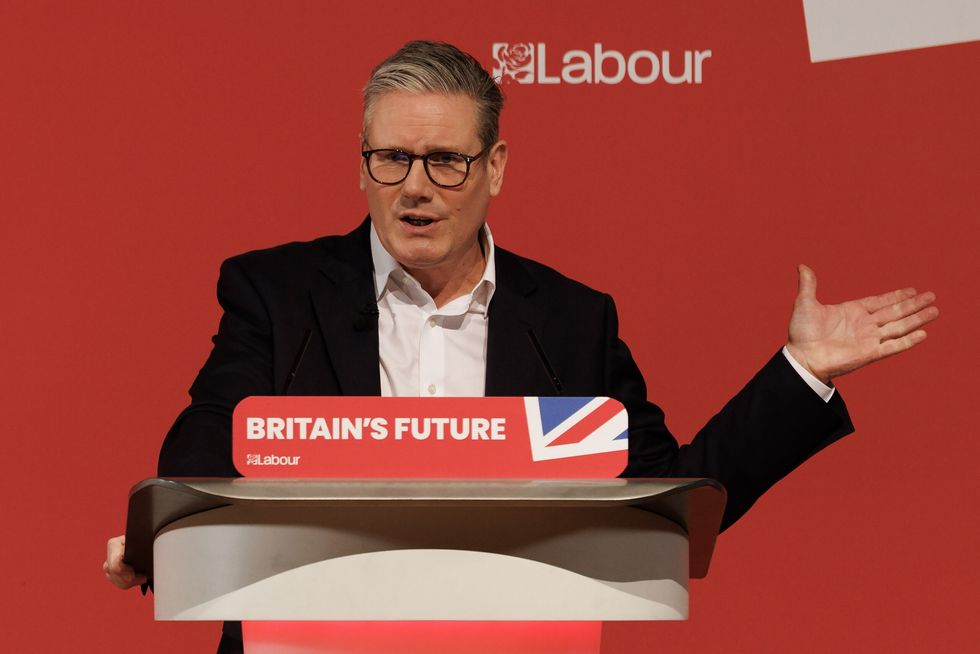THE government’s controversial Safety of Rwanda Bill returns to the House of Commons this week, where MPs will debate amendments proposed by the Lords.
Facing the conundrum of what to do with the Bill – which overrules the UK Supreme Court to deem Rwanda a safe place to which asylum seekers can be removed – the Lords proposed some exceedingly modest amendments. Peers suggest that the scheme should "maintain full compliance with domestic and international law". Where the Bill insists that the courts must find Rwanda safe, the caveat "unless presented with credible evidence to the contrary" is appended. Nobody could mistake the crossbench peers in the House of Lords for a group of dangerous radicals.
New research published today by British Future finds majority public support for almost all the Lords amendments. The ‘will of the people’ – invoked by PM Rishi Sunak as he warned peers not to delay his Bill – supports this common-sense consensus: if you want to deem Rwanda safe, you first have to check that it is.
Six in ten people (61%) – including 55% of Conservative voters – think the government should either accept some amendments to the Rwanda policy or scrap it altogether.
They look likely to be disappointed. These modest proposals now go to the Commons, where the government will vote them down. What happens next is called "ping pong" between the chambers. What has made some crossbenchers cross with the Opposition, as well as with the government, is Labour's reluctance to attempt a rally or two before conceding this Bill to the government.

Peers are reticent about using their constitutional power to delay a bill by up to a year – yet an opposition-crossbench alliance could use that as significant leverage to insist on one amendment to properly check whether Rwanda is actually safe.
Labour fears that the Rwanda Bill is a trap – so worries about giving the government a “Get Rwanda Done” election slogan. But how far is it a cunning plan to duck that, if it effectively helps the government to get Rwanda done sooner?
Keir Starmer’s heart will be on the side of the rule of law. Might the former human rights lawyer be willing to sacrifice international law to prove he is steely enough for power? Maybe. But set the ethics aside for a moment and ask whether that political calculus makes sense even in its own terms.
After all, Labour has pledged to scrap the Rwanda plan when it takes office. To win marginal seats across the UK, in both Kent and Glasgow, it needs a bridging message of “control and compassion” that can make sense to swing voters and its liberal base. That means being tough on people-smugglers and fair to refugees. Labour would seek to remove those whose asylum claims fail – but opposes indiscriminate removals to Africa, which deport those with genuine claims too.

The working assumption of both parties is that, if this bill passes quickly, there will be some pre-election flights to Rwanda. That may not happen. There are court battles to come. No airline wants the job. President Kagame knows that Rishi Sunak’s re-election prospects look weaker than his own. Might he lose his appetite to make Rwanda the political football in a UK election likely to bring Labour to power?
So the cautious Starmerite choice should be to lock in the current Rwanda argument. Sunak blames bishops, judges and Labour for frustrating his plan – but a blame game about why he could not stop the boats reminds voters that he failed to keep his promises. Labour’s counter that Rwanda was an unworkable gimmick is stronger if the plan never starts.
The gamble is to throw Rishi Sunak a lifeline on his biggest political headache – helping him to change the subject from (not) stopping the boats to who will and won’t ‘send the planes’. It will be too late to judge if the (unlikely) deterrent argument stands up but that won’t stop briefings about a massive, post-election expansion of the Rwanda plan. The media optics will be intense. If the Opposition did want less Rwanda in the election build-up, gifting dramatic images of flights and protests to the government is a tactical blunder at least.
Starmer could learn much from the cautious crossbenchers. Their modest amendments pass the common sense test – and get a thumbs-up from the public as a result. Let Rwanda be deemed safe , if it is safe. Give British courts as much say as the ECHR: if the new Treaty really has fixed the problems the UK Supreme Court found, the government should have nothing to fear from the judges.
Politics can involve difficult dilemmas – but ethical imperatives and political interests can coincide. If the Opposition has the power to delay the Rwanda plan – unless it is genuinely safe – should it use it or stand aside? Let us at least debate the choice being made and why.





 Heehs describes two principal approaches to biographyAMG
Heehs describes two principal approaches to biographyAMG











 David Beckham wearing a David Austin Roses "King's Rose" speaks with King Charles III during a visit to the RHS Chelsea Flower Show at Royal Hospital Chelsea on May 20, 2025Getty Images
David Beckham wearing a David Austin Roses "King's Rose" speaks with King Charles III during a visit to the RHS Chelsea Flower Show at Royal Hospital Chelsea on May 20, 2025Getty Images
If Labour has the power to delay the Rwanda plan, why don’t they use it?
British future’s research shows that majority ask for amendments to the Rwanda policy or scrap it altogether